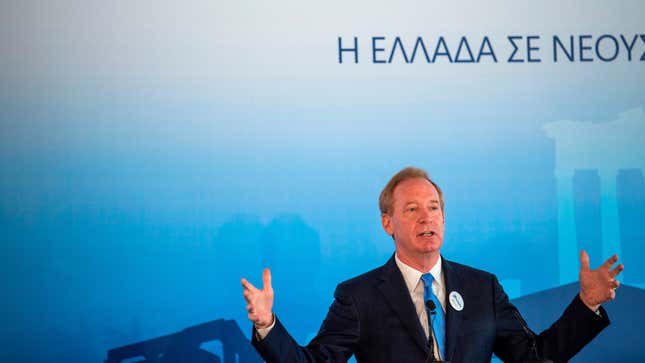
Microsoft would like the U.S. government to adopt media rules that would force big tech companies to share profits with newspapers when they link to news content, according to a new blog post by Microsoft president Brad Smith. And the entire concept is controversial, to say the least.
The profit-sharing idea, which has been proposed in Australia, has not gone over well with companies like Google, which has threatened to block searches down under if the new media rules become finalized and implemented. But Microsoft thinks it’s a great idea that deserves serious consideration in the U.S.
“...we’ve heard from people asking whether Microsoft would support a similar proposal in the United States, Canada, the European Union, and other countries. The short answer is yes,” the introduction to the Microsoft blog post reads.
Specifically, Smith seems to like what’s called “baseball arbitration” to determine the fair price newspaper publishers should get for the content they produce. Under Australia’s proposed media rules, an arbiter would force the major newspapers and tech giants like Google and Facebook to sit down and figure out a fair price for compensating news outlets based on the content they produce.
The theory is that Google and Facebook are getting that content for free and shouldn’t be able to eat the newspaper industry’s lunch by taking all the ad revenue generated by someone else.
From Smith’s blog post:
Google objects strenuously to what it regards as the injustice of having to engage in baseball arbitration. It argues that this type of arbitration is appropriate only “when the parties are already close in price.” In contrast, according to Google, there is a wide gap between what news organizations are seeking and what Google is prepared to pay. Ignoring the fact that an imbalanced bargaining position has created this disparity in the first place, Google in effect asserts that its own inflexibility at the negotiating table means that it should not have to participate in an arbitration that rewards reasonableness over intransigence.
Smith continues:
Microsoft’s Bing search service has less than 5% market share in Australia, substantially smaller than the 15-20% market share that we have across PC and mobile searches in the United States and the 10-15% share we have in Canada and the United Kingdom. But, with a realistic prospect of gaining usage share, we are confident we can build the service Australians want and need. And, unlike Google, if we can grow, we are prepared to sign up for the new law’s obligations, including sharing revenue as proposed with news organizations. The key would be to create a more competitive market, something the government can facilitate. But, as we made clear, we are comfortable running a high-quality search service at lower economic margins than Google and with more economic returns for the press.
Smith makes some very bizarre comments in the post, completely unrelated to Australia’s proposed media laws. For instance, Smith hints that Russia invented disinformation in 2016, which is an absolutely absurd notion.
From Smith’s post, emphasis ours:
On the one hand, the internet and social media have unfortunately become powerful engines of disinformation and misinformation. First pioneered by the Russian government in the 2016 U.S. election, the disinformation disease has now spread much more broadly. Without new and greater restraints, there is a growing risk that more politicians and advocates will exploit the algorithms and business models underlying social media and the internet to turn disinformation into a new political tactic of choice.
Needless to say, Russia didn’t invent disinformation, let alone disinformation online. But strange tangents aside, Microsoft has clearly planted its flag against monopoly power in search, a funny backflip for anyone who remembers Microsoft as the bad guy during 1990s antitrust lawsuits with the U.S. government.
What happens if Google blocks all searches in Australia? The country’s Prime Minister Scott Morrison says there’s always Bing. Morrison has been in discussions with Microsoft on stepping up to the challenge and filling the search void if Google takes its ball and goes home. But Australians are skeptical that it’s so easy.
Google search has roughly 95% market share in Australia, as Smith points out, a larger percentage than even most western countries like the U.S. where Google has just an estimate 62% market share, if you can believe that. But Bing just isn’t seen as reliable as Google. There’s a reason “google” has become a generic term for conducting an internet search and “bing” has not.
Where will the debate go from here? No one knows for sure. But Australia is sticking to its guns, which could create a precedent for other countries. The precedent could be a country completely dependent on Bing, or it could be a precedent where Google caves and is forced to the bargaining table. Either way, it will be interesting to watch, whether or not the Biden administration takes inspiration.